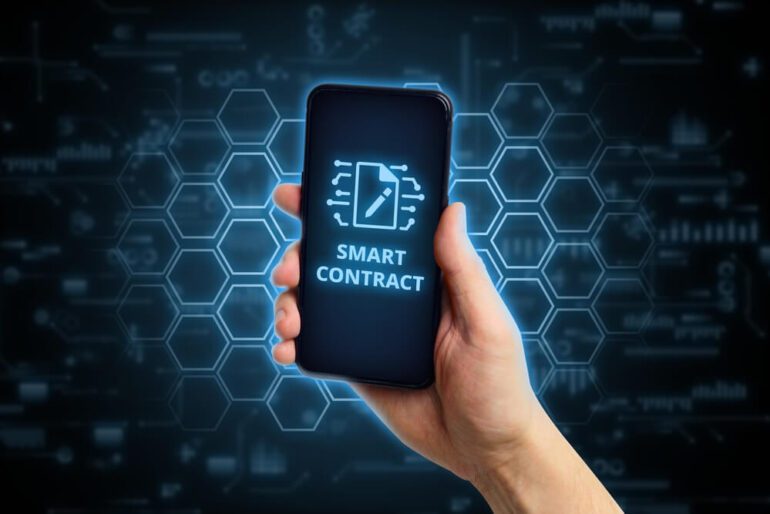TL;DR:
- Blockchain growth accelerates smart contract adoption.
- Smart contracts automate agreements, but vulnerabilities exist.
- AI integrates into auditing to enhance efficiency and accuracy.
- AI methods include static analysis, machine learning, NLP, and dynamic analysis.
- Benefits: efficiency, accuracy, scalability, and continuous improvement.
- AI-powered auditing is crucial for blockchain’s evolving landscape.
Main AI News:
The rapid proliferation of blockchain technology and cryptocurrencies has ushered in a wave of transformative innovations, chief among them being smart contracts. Smart contracts represent a paradigm shift in the way agreements are executed, dispensing with the need for intermediaries and ushering in a new era of efficiency, transparency, and security. Nevertheless, despite their manifold advantages, the realm of smart contracts is not impervious to vulnerabilities and errors. To grapple with this challenge, the integration of artificial intelligence (AI) into auditing processes has emerged as a beacon of hope.
Deciphering Smart Contract Auditing The essence of smart contract auditing lies in the comprehensive scrutiny of contract code, with the goal of unearthing potential vulnerabilities or coding glitches ripe for exploitation. Traditional auditing methodologies have hitherto leaned on manual reviews and testing conducted by human experts. While effective, these manual audits are often protracted and financially demanding, and they may still leave certain blind spots due to human fallibility. Enter AI-powered auditing.
Revolutionizing Smart Contract Auditing with AI Harnessing the prowess of artificial intelligence can engender a seismic improvement in the landscape of smart contract auditing. Here are several avenues through which AI can enrich the auditing endeavor:
- Static Analysis: AI can undertake static analysis of smart contract code, facilitating the automated identification of conceivable security vulnerabilities. AI algorithms scrutinize code structures, discern common patterns, and cross-reference them against a repository of known vulnerabilities. This automated approach empowers auditors to promptly pinpoint potential risks, economizing both time and energy.
- Machine Learning for Vulnerability Detection: Machine learning algorithms can be honed on vast reservoirs of smart contract data to recognize discernible patterns and flag potential vulnerabilities. These algorithms are trained on historical data to ferret out common coding blunders, such as reentrancy attacks or integer overflows, which nefarious actors are wont to exploit. With their accuracy perpetually on the ascent, machine learning models metamorphose into indispensable tools for auditors.
- Natural Language Processing (NLP) for Auditing Reports: AI-driven natural language processing techniques can be deployed to sift pertinent data from audit reports. This affords auditors the ability to promptly assess the overarching security stance of a smart contract through automated summarizations of findings, pinpointing critical issues, and offering remedial recommendations.
- Test Coverage and Dynamic Analysis: AI can elevate the testing process by generating and executing test cases to assess the comportment of smart contracts under diverse conditions. Through the simulation of myriad scenarios, AI algorithms are adept at ferreting out edge cases and potential glitches that may evade detection through manual testing alone. This augments auditors’ test coverage and safeguards the resilience of smart contracts.
Gains from AI-Powered Smart Contract Auditing The incorporation of AI into the realm of smart contract auditing bequeaths an array of pivotal advantages:
- Enhanced Efficiency: AI-driven auditing trims down the time and effort essential for identifying potential vulnerabilities and security threats in smart contracts. This enhanced efficiency empowers auditors to delve into contract reviews expeditiously, leading to swifter deployment and an overarching fortification of security.
- Elevated Accuracy: AI algorithms exhibit a heightened level of precision in code analysis, curtailing the probability of human errors that may creep into manual reviews. The automated nature of AI-powered auditing ensures uniform results, elevating the dependability of the audit process.
- Scalability: With the capability to process voluminous tracts of code and data, AI furnishes auditors with the wherewithal to scale their efforts without sacrificing quality. This scalability assumes paramount significance in the dynamic blockchain sphere, where a multitude of smart contracts are conceived and deployed on a daily basis.
- Continuous Enhancement: AI algorithms are adept at assimilating newfound vulnerabilities and vectors of attack, perpetually refining their ability to spot potential risks. This adaptive quality of AI guarantees that auditors remain attuned to emerging threats and uphold rigorous security standards.
In sum, artificial intelligence introduces a new echelon of automation and efficiency into the domain of smart contract auditing. By harnessing AI-powered techniques such as static analysis, machine learning, natural language processing, and dynamic analysis, auditors can efficaciously ferret out vulnerabilities and security perils lurking within smart contract code. The infusion of AI into smart contract auditing processes heralds heightened efficiency, accuracy, scalability, and an enduring commitment to improvement, all of which conduce to the overarching security and reliability of decentralized applications. As the juggernaut of blockchain technology barrels forward, the role of AI in smart contract auditing assumes ever-greater significance in preserving the sanctity of decentralized ecosystems.
Conclusion:
The integration of AI into smart contract auditing represents a pivotal advancement for the market. It brings unprecedented efficiency, accuracy, scalability, and adaptability to the auditing process, ensuring the security and reliability of smart contracts in an ever-evolving digital landscape. As blockchain technology continues its rapid expansion, the role of AI in auditing will be indispensable for maintaining trust and integrity in decentralized ecosystems, making it a strategic imperative for businesses operating in this space.

